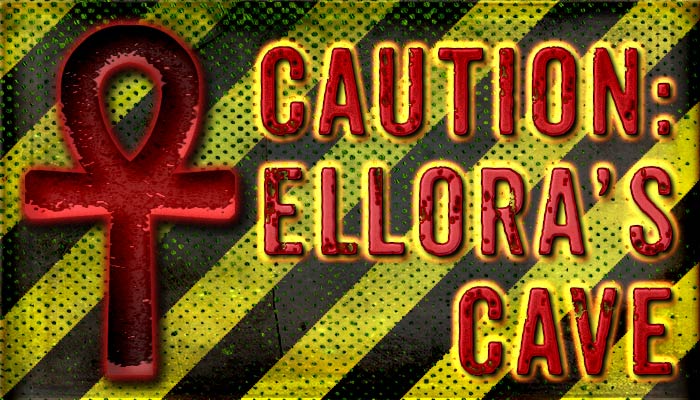Proving Substantial Truth
27 October 2014

Substantial truth can be tricksy. Here’s a DMLP post with a few examples.
Two of those examples where the statements were ruled substantially true:
A statement that a boxer tested positive for cocaine, when actually he had tested positive for marijuana. See Cobb v. Time Inc. 24 Media L. Rep. 585 (M.D. Tenn 1995).
A statement that a man was charged with sexual assault, when actually he had only been arrested but not arraigned. See Rouch v. Enquirer & News of Battle Creek, 440 Mich. 238 (1992).
Look, I haven’t read up on the case law, but the above two examples should demonstrate that “substantial truth” isn’t cut and dried.
Hypothetically Speaking
Let’s say the claim in question is about “a set of authors” and whether or not they’ve been paid in a timely manner. Let’s say there are more than 500 authors, each of which has one or more books.
Now, the person believing they’ve all been paid may in fact only have been double-checking the highest earners.
However, let’s say the claims are true for three authors:
a = {Fred, George, Mark}
That still means one needs to sift through an unknown large portion of the data set before one determines that it’s true for “a set” of them.
And Now an Intermission
I’m done with the above hypothetical.
I have no personal information about the actual facts of the Ellora’s Cave case. However, I’d like to look at some back-of-the-envelope calculations.
How Big Is the EC Data Set?
Let’s go with the following assumptions:
- 934 authors (last I counted). Let’s round down to 900.
- Amazon gives me 6,767 items when I search for “Ellora’s Cave.” Let’s assume 4,500. Ergo, an author has an average of 5 titles, including paperback editions.
- Each book sells, per month, in an average of 5 stores from: EC’s own site, ARe, Kindle, Nook, Kobo, Google, iBooks, foreign markets for same, and any paperback vendors.
- Need to look back to when the accounting system changed last year, so 10 months of data at present.
- Each line item has seven pieces of data per month per author (per Cat Grant’s statements). The 7 pieces of data are: ISBN, title, format, store, amount received per unit, qty sold, total received (calculated, so not actually a separate piece of data), royalty %, royalty paid (also calculated).
So for each month:
4500 books x 5 stores books sold in that month x 7 other pieces of data = 157,000 pieces of data (or 174 per author). Per. Month.
Times ten months, so 1.57 million.
Consider the legal and accounting billing that would be involved in re-verifying and distilling 1.57 million pieces of data.
Another Aspect of Substantial Truth
In a case where “a set of authors” may not have received timely payments, royalty payments received by the publisher not corresponding with line items paid to authors could potentially also be a source of substantial truth.
Therefore, one would also need to audit amounts received from, say, Amazon, and amounts paid out in royalty checks that month, and determine that the amounts were equal. (Especially when others have said they’ve seen no Amazon drops during the same period for similar non-EC books.)
There are also around 9,000 checks to sort out.
- When were they written?
- When were they mailed?
- When were they cashed?
- When did they clear the bank?
- Are any missing? Either not paid or not cashed?
- If they’re missing, were they actually cut?
In theory, all that information is already entered and double-checked and could be provided to the defense at a moment’s notice.
The Question that Started This Post
@deirdresm Law Q: Are EC actions only relevant to the case up until the time it was filed? Recent payment timing immaterial? #notchilled
— Susan Garbanzo (@Soenda) October 27, 2014
It’s a good question. It doesn’t change the absolute truth of what was said on the day it was said, no.
But if events post-filing help show substantial truth, then probably they’re relevant.
@Soenda I haven’t read the case law; I can only guess. My guess: similar actions after filing help substantive truth claim. #notchilled
— Deirdre Saoirse Moen (@deirdresm) October 27, 2014
My Intuition
This case, if it gets all the way to a jury trial, will be far, far more expensive to litigate than other people have expected because the potentially triable matters of fact involve large data sets.
It’s my understanding that the burden of proof is on the plaintiff to show substantive falsity. Meaning: Ellora’s Cave and the mysteriously joined Jasmine Jade Enterprises need to demonstrate that.
Can they sample the data?
I don’t see how they can prove that “a set of authors” is defamatory without the full data being examined. “A set of authors” doesn’t need to be a large set.
My intuition, given the lagging of checks mailed weeks after the check date, all the reports of no answer for months when authors asked about royalty checks, is that that aspect of the DA post, at least, was substantively true.
Consider, for example, how small the two examples at the top are in terms of data. A single arrest. A single drug test, and possibly one or more followups. But not 1.57 million of them.
Completely different animal, litigation-wise.